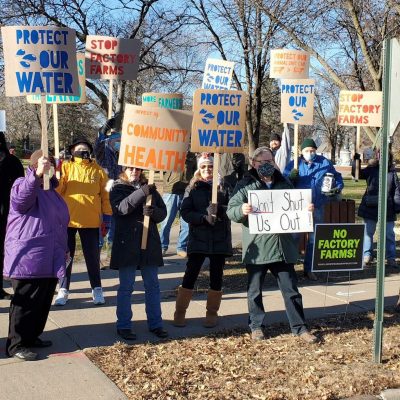Stewardship, Justice & Democracy
At the Land Stewardship Project, among member-leaders and staff, we’ve been thinking more about our work in the context of economic, racial, and gender equity in this country, and how that relates to core values of LSP, like stewardship, justice, community, democracy, and health. Land Stewardship Project’s board is meeting this week to give a… Read More →
